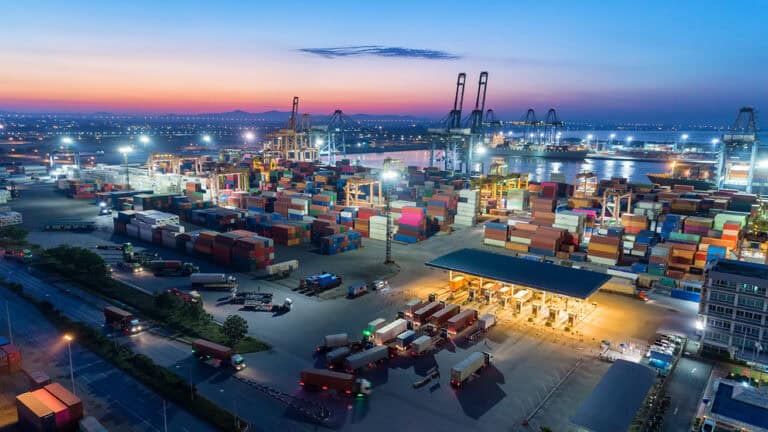
Commodity exports are back in the limelight. Three years ago, I wrote about China’s restrictions on soybean exports. Now, it’s about sugar – and microchips, vaccines, and more. Frankly, I’m highly concerned about the potential availability or higher costs for all the sweet treats I enjoy around the holidays. But why is my box of chocolates the victim of politics and trade?
The ongoing sugar shortage is caused by lower production due to climate change, export restrictions by major sugar-producing countries, and higher demand from emerging markets. Sugar production depends on favorable weather conditions for growing sugarcane and sugar beet. However, climate change has disrupted the natural rainfall and temperature cycles, leading to droughts, floods, and pests that damage crops. For instance, India has faced severe water shortages that have reduced its output by 10%–15%. Similarly, Brazil, the world’s largest sugar producer, has suffered from frost and dryness that have hurt its harvest.
Government Controls – Good or Bad
Government intervention in global trade is not new, and there is a diversity of opinion about it. Some believe governments should support open trade, abstaining from restrictions. Others feel the controls establish protectionist policies that safeguard specific industries and workers from foreign competition. Export controls are legal measures restricting the export of certain goods, technologies, or services to particular countries or entities for national security, foreign policy, or humanitarian reasons. While they limit external trade, these rules often improve in-country access to these commodities at lower prices. Export controls can have various impacts on the global supply chain, such as:
- Disrupting the flow of goods and services across borders and regions.
- Increasing the costs and risks of doing business with sanctioned or restricted countries or entities.
- Reducing the access to innovation and technology transfer for both exporters and importers.
- Affecting the competitiveness and profitability of firms in different sectors and markets.
A few days ago, India, the world’s third-largest sugar producer, extended its export restrictions in a renewed bid to protect domestic supplies, a move that will likely tighten the global market and raise costs for the food industry. The Ivory Coast Ministry of Agriculture temporarily prohibited the export of rice and sugar, and Brazil, China, Egypt, Turkey, and Kuwait have also imposed export restrictions on sugar since 2022 to prevent shortages and stabilize prices in the domestic market.
However, Brazil, the number one sugar producer, also holds back some of its about 28.2 million metric tons of sweetness. In comparison, Thailand, the number two exporter, moved about 11 million metric tons of sugar last year. Brazil is also the second-largest recipient of the U.S. sugar tariff-rate quota, currently receiving an allocation for a tariff-rate quota (TRQ) of 196,440 metric tons from the USTR in July 2023. (A TRQ is a quota that limits the quantity of a product that can be imported at a lower duty rate, allowing countries to export specified quantities of a product to the United States at a relatively low tariff.)
According to Bloomberg, raw sugar futures in New York climbed as much as 0.7% to 27.67 cents (USD) a pound on October 18, while the white variety advanced over 1% in London after the announcement by the Indian government. Costs will continue to rise for producers and consumers alike.
Ahead of the Curve
As trade policymakers around the globe pull import and export control levers that affect the flow of goods, companies need to be keenly aware of these changes. Trade policies are shifting from a simple matter of tariffs and duties to incorporating restrictions for more significant issues like national security, human rights, and environmental concerns. These new restrictions add greater complexity to existing rules, and manual trade compliance processes will not keep companies ahead of the shifts. Fortunately, organizations involved in global trade have a way to get ahead of the curve.
E2open’s Global Knowledge® application contains the industry’s most comprehensive trade content database, including government regulations and international business rules. This content powers the e2open Global Trade Management intelligent application suite by fully supporting import, export, duty management, and logistics processes with the most current data available anywhere. E2open Global Knowledge contains the digital embodiment of the complex legalese of trade regulations, allowing data to feed into e2open’s applications for planning, sourcing, supplier management, trade compliance, and logistics.
That’s why e2open has a team of over 150 global and in-country content providers and trade specialists monitoring and screening all laws and regulations published by government regulatory agencies worldwide. This content is compiled and updated using an ISO® 9001:2015 certified 19-step process and maintained within our global trade content database. Updates to international trade data are processed daily to ensure companies utilize the most current regulations, which reduces global trade risks and improves process efficiencies. Global Knowledge covers over 200 countries—more than 95% of world trade—making our trade content and content management process the best in the industry.
Global trade management (GTM) isn’t easy, but when government regulations fluctuate in response to changing conditions such as demand shifts, your supply chain can respond with agility and resiliency.
The global sugar shortage is a severe problem that could affect not only candy lovers but also food manufacturers, retailers, and consumers in general. To deal with this situation, we must raise awareness about the issue, support sustainable sugar farming practices, and reduce sugar consumption. You can also try some natural sweeteners like honey, maple syrup, or stevia instead of refined sugar. Remember, a little sweetness goes a long way!
If you would like to learn more about our Global Knowledge application or other applications under the Global Trade Management intelligent application suite, please feel free to contact us.







